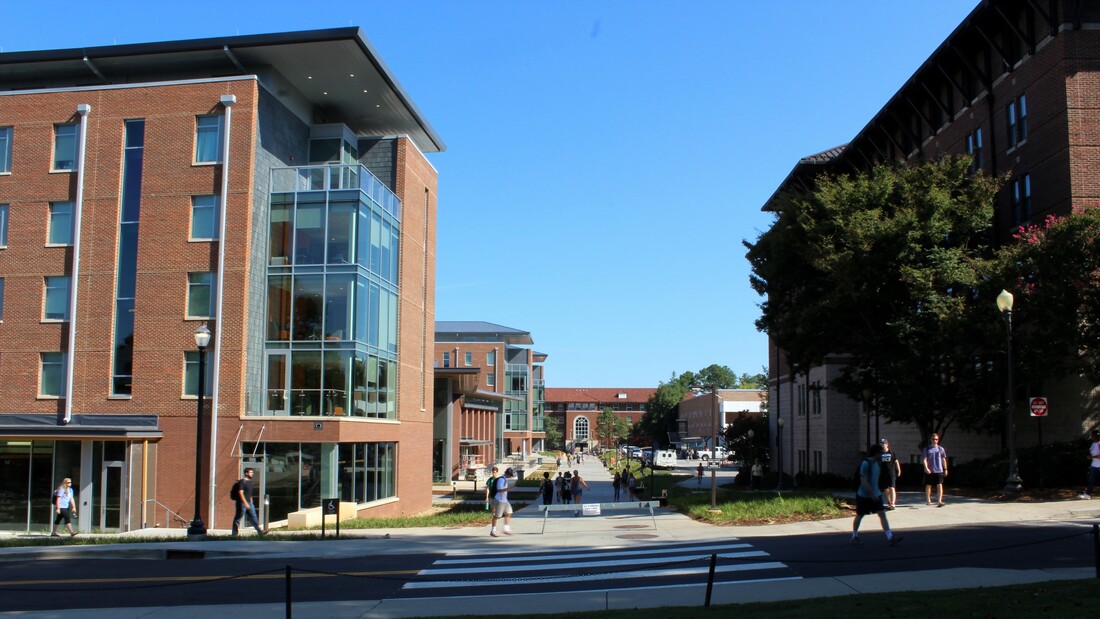|
The effort to rename Calhoun Honors College at Clemson is misguided. Of course, any city, college, or any other entity has the option to name or rename structures, but the current student petition constitutes nothing less than the tendency of contemporary Americans to demonstrate how we "forget who we are" and engage in what has become known as political correctness. The advocates of political correctness want to corrupt history for temporary political gains more than they desire to keep or restore it, and their efforts are, sadly, a disease on the body politic. In fact, if fully and honestly considered, no name change is needed. Clemson University could join the many operatives of political correctness who have met with great success of late. With Orwellian irony, they succeeded in renaming a dorm named after Calhoun at Yale University, renaming a U.S. Navy ship named for a person who hated the Navy (Cesar Chavez), and have imposed "speech codes" (with the actual purpose of restricting speech) on many college campuses--as well as more destructive examples of assaulting First Amendment rights and redefining history. Even former President Obama was not above the fray as demonstrated by his renaming of Mt. Kinley. The greatest threat to political correctness is an environment in which free and uninhibited discussion and disagreement can take place. In fact, diversity of thought is the opposite of political correctness, and is at the heart of a free society. The proponents of political correctness--and those who desire to rename Clemson’s honor college--stand on the side of censorship against free and open discussion. Calhoun’s “legacy” is indeed complex and subject to debate. However, in denying Calhoun’s vital role in American political life, they have committed a great injustice to the rising generation. The untold story, now diminished even more by recent decisions, is Calhoun’s importance to American political thought and history. While spending most of his public life in the United States Senate, he was also vice president under both John Quincy Adams and Andrew Jackson--and he served as secretary of state to John Tyler. He is generally regarded as one of the greatest senators ever, part of the "Great Triumvirate" with Henry Clay and Daniel Webster--and each supported the Fugitive Slave Act. What the advocates of name change do not want you to know is that Calhoun was not only one of America's greatest statesmen, but also one of its greatest thinkers. His two treatises on American politics, the Disquisition and Discourse (published after his death), demonstrate his hope that America could avoid the pending conflict of the Civil War. In Calhoun's interpretation, America's greatest hope lay in the interposing and amending power of the states, which was implicit in the Constitution. This alone could save the country by allowing for a greater diffusion of authority and undermining the cause of sectional conflict. Calhoun's purpose was the preservation of the original balance of authority and the fortification of the American political system against the obstacles it faced. The students may have good intentions, but as Shakespeare warned, "men are men; the best sometimes forget." John Calhoun was imperfect, but he remains one of the greatest statesmen in American history. In the world of some activists, neither the past nor the future deserve our attention, and we are only left with the option of muddling through the present. Note: This piece was co-authored by Sean Busick, Professor of History at Athens State University in Alabama.
1 Comment
|
AuthorDr. H. Lee Cheek, Jr., is Professor of Political Science and the former Dean of the School of Humanities and Social Sciences at East Georgia State College. Archives |
Proudly powered by Weebly

